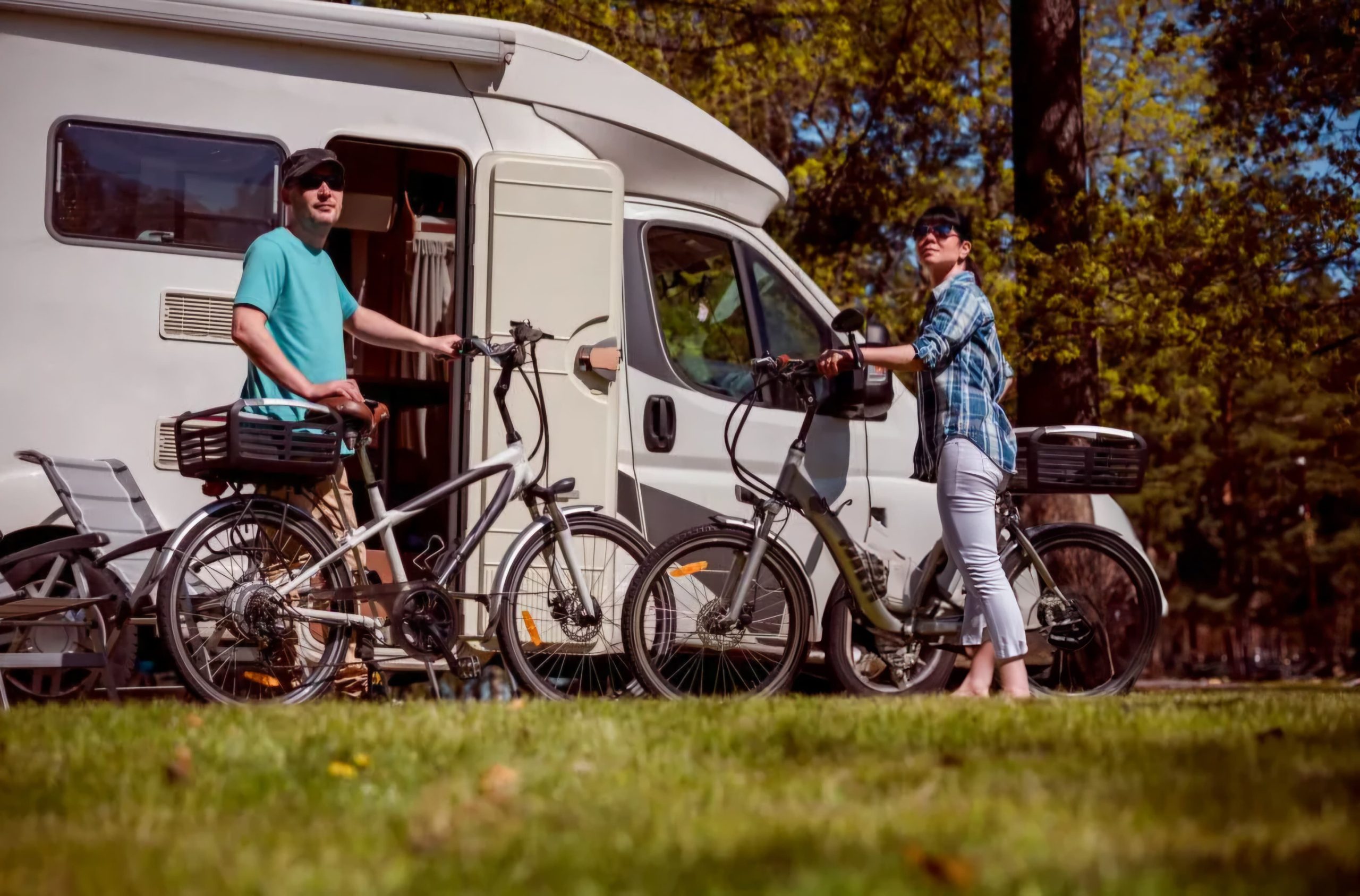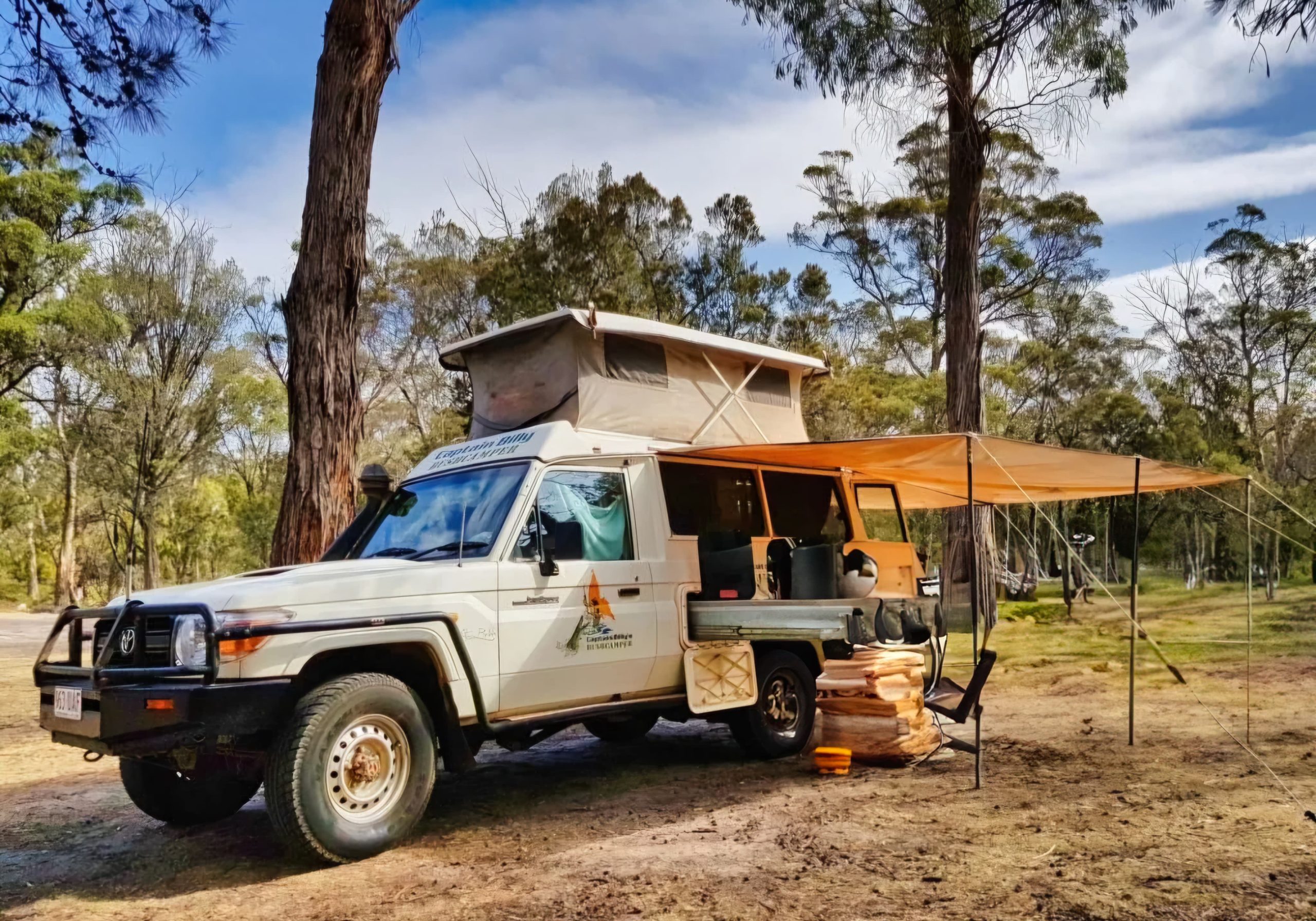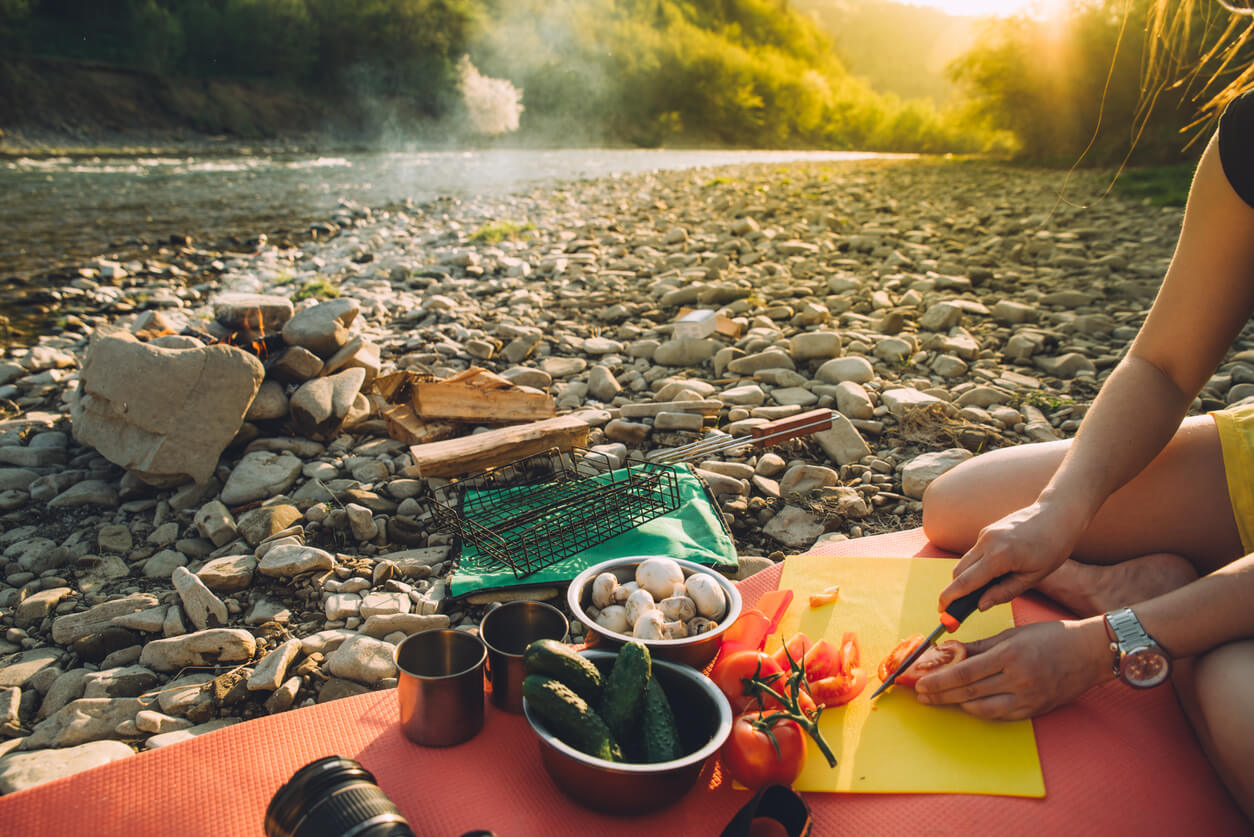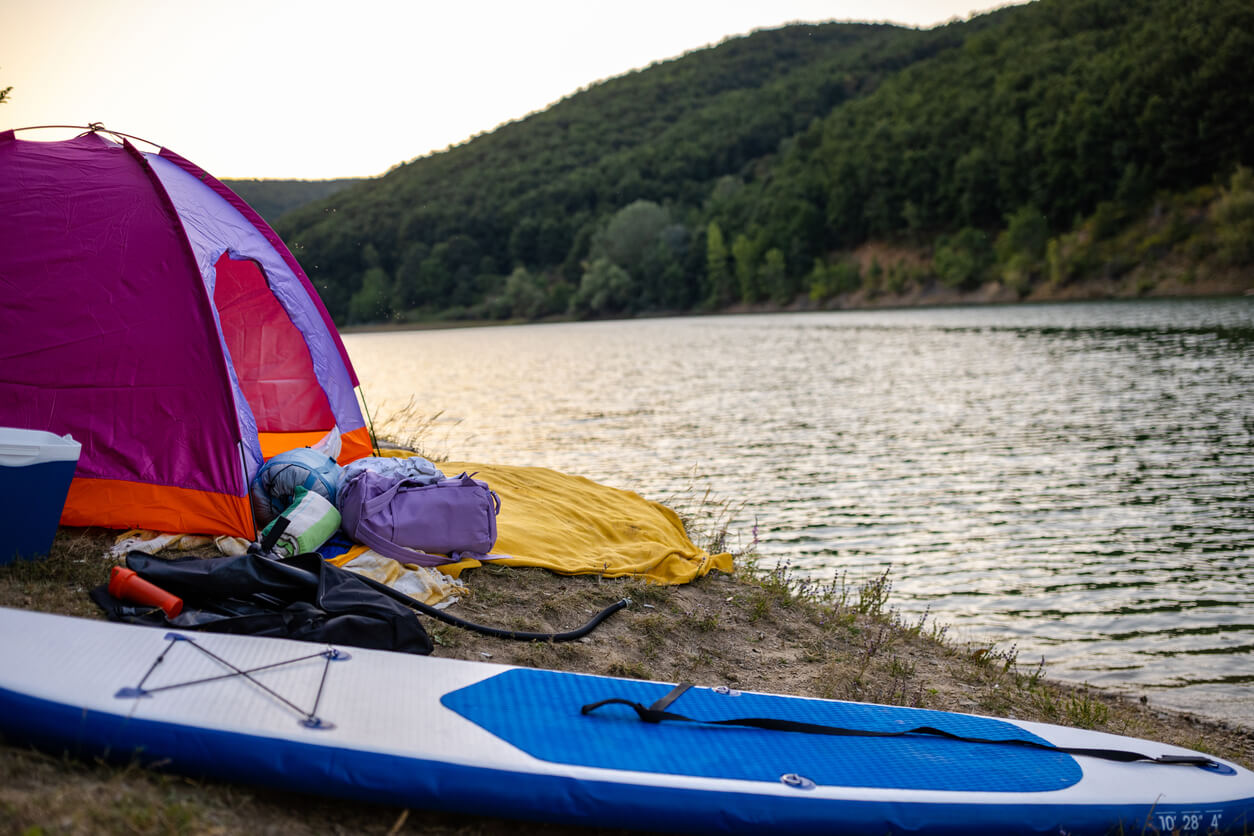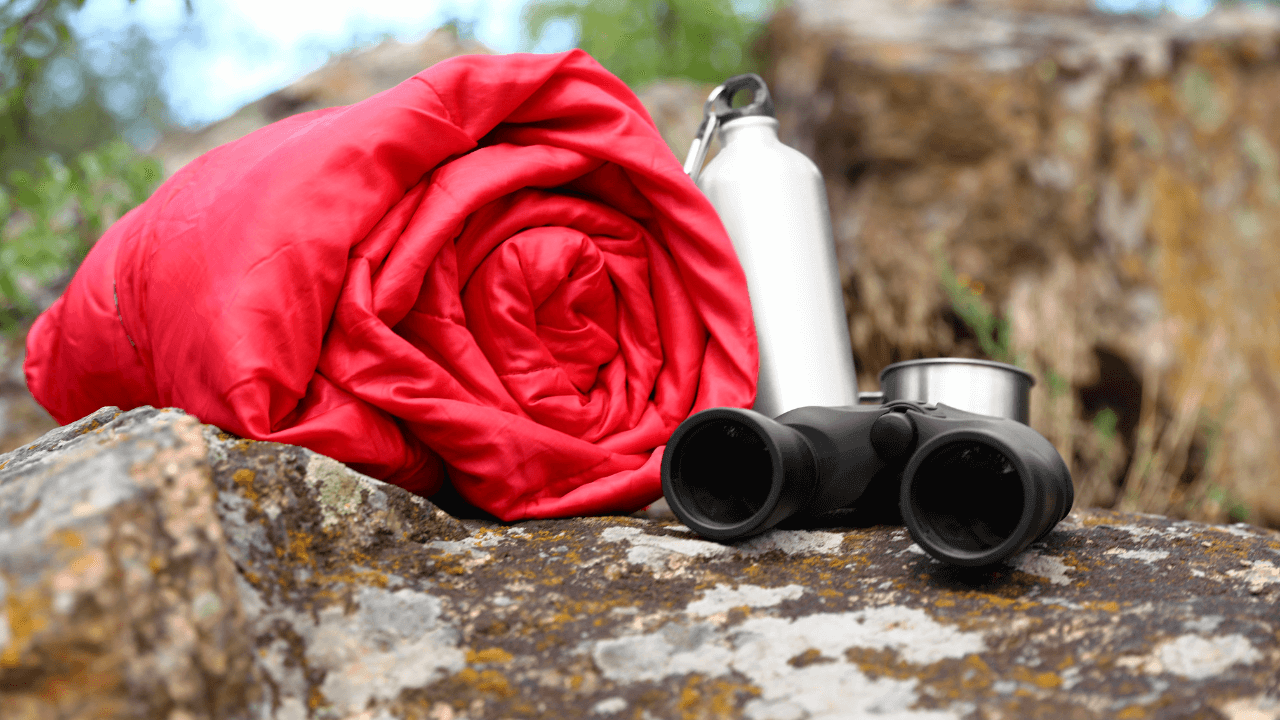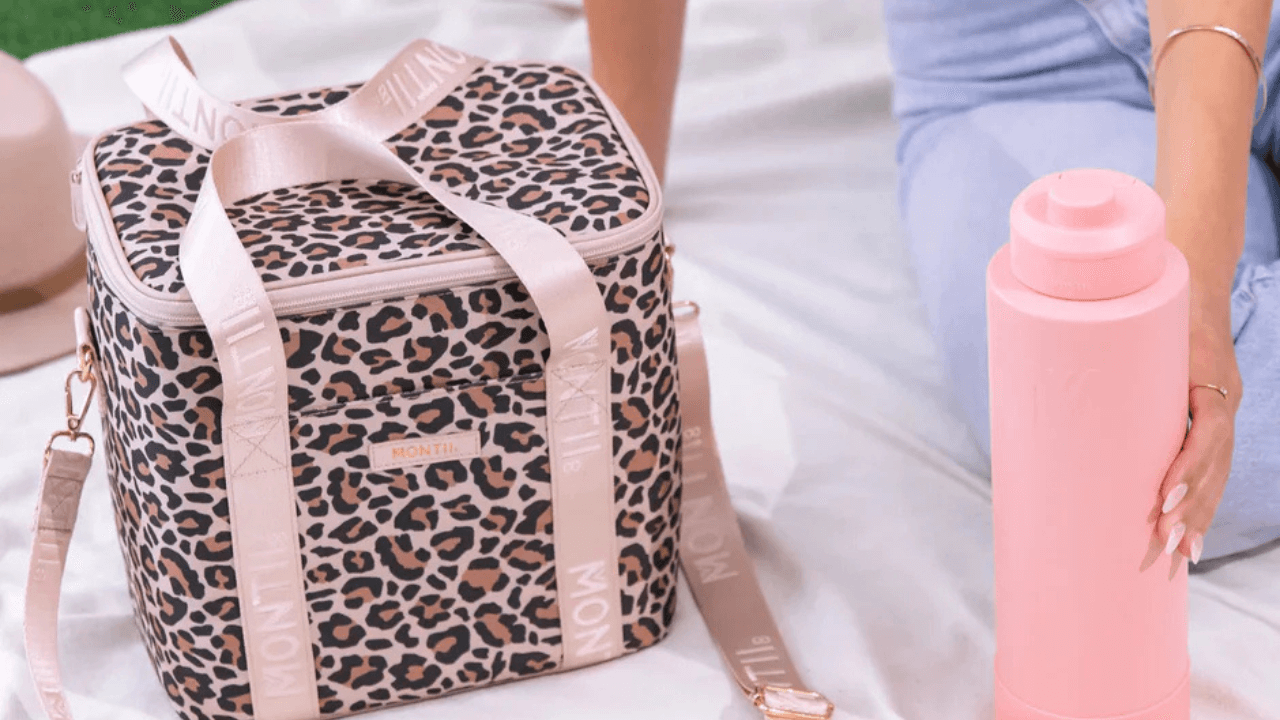Table of Contents
ToggleAlways Have a Backup
Even if you have a massive caravan water tank, you should still pack some sort of backup water source in your camping essentials. This could be as simple as a stash of drinking water in reusable water bottles, bulk water container or a clean jerry can. That way you always have water available in case your primary camping water tank runs low or you suffer a leak in your caravan water tank (what a nightmare!). The reserve bottles will keep you hydrated while you come up with a solution.
Bring a Water Bladder or Rain Catcher
Use Hand Sanitizer & Wipes
Use Disposable Plates
Wash Dishes Once a Day
Take Short Showers & Collect Cold Water
Use Melted Ice Blocks from the Cooler
I rarely use ice cubes in my cooler when I’m camping. Instead, I freeze ice blocks from drinking water in Tupperware at home, then put them in sealable bags. They last twice as long in the cooler. Then when they melt, I can pour out the water from the bags for making tea, washing hands, or filling water bottles.
Flush the Toilet Sparingly
Bring a Water Filter

Image courtesy of Australian Geographic
Packing a water filter or water purification system in your camping accessories lets you tap into natural water sources. Something as simple as a Lifestraw or iodine tablet gives you the ability to turn a clear running stream into a source of potable water. This helps you save water by not drawing so much from your camping water tank. For more information in water filters check out our Ultimate Guide for Choosing the Right Water Filter for Camping.
Wrapping Up
When camping off-grid, saving water isn’t just smart, it’s a matter of survival. Bringing a reserve supply of water in your camping supplies for an emergency ensures you have enough basic water supplies in case your main camping water supply runs out, or you suffer a catastrophic leak. While camping off-grid, use water cautiously and reuse water as much as you can. This can include things like saving the leftover water in the bottom of the kettle or capturing the cold water at the start of the shower for reuse. Disposable plates and hand sanitizer also reduce the amount of water you need to use for clearing up and staying hygienically clean. Try to use as few pots and pans as possible for cooking. Then be smart about the order you wash them in to maximize the value of your dishwashing water. Making the most out of natural water sources is also a handy way to conserve your potable water when camping off-grid. Collected rainwater and filtered natural water can be used for washing hands and dishes. This will help with water conservation for drinking and cooking.
Related Posts
- Ultimate Guide for Choosing the Right Water Filter for Camping
Understand which water filter is best for you and check out our top water filter…
- The Best Camping Showers for Your Next Adventure
There are many camping showers to meet just about any camping style and budget. We…
- Must-Have 12v Appliances for Camping in 2025
Love to take your favourite appliances on your camping trip? We have the complete list…
- How To Choose The Best Camping Mattress
With the right gear and a little preparation, your camping mattress will be a dream…
- The Ultimate Guide To Choosing The Perfect Camping Chair
If you’re planning on going camping or venturing in your caravan, there are a few…
- Lithium Batteries and Camping: Everything You Need To Know
In this guide, we’ll go through everything you need to know about lithium batteries, and…
